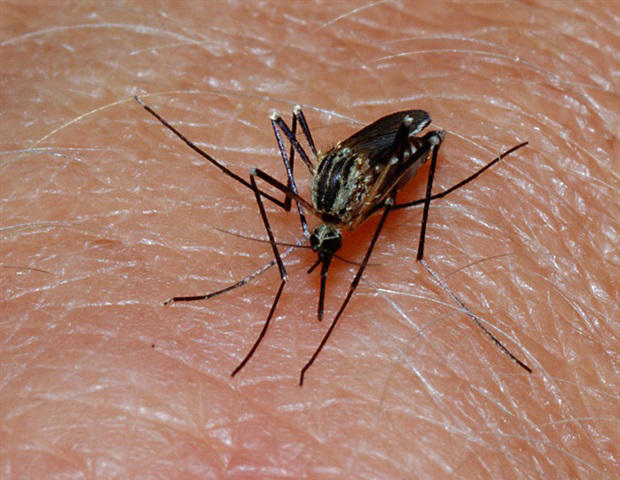AI-Driven Mosquito Surveillance: A Game-Changer in Malaria Control
Share IT

Launch Your Dream Website with Us!
Click Here to Get in touch with Us.
Categories
AI-driven mosquito surveillance
Creative solutions are essential in the never-ending fight against malaria, a disease that kills hundreds of thousands of people every year. One such innovative strategy is to transform mosquito surveillance by utilizing artificial intelligence (AI). This initiative intends to support malaria control efforts and eventually save lives by using cutting edge technology to detect and anticipate mosquito populations, especially in Africa where malaria is a major problem.
Thank you for reading this post, don't forget to subscribe!Table of Contents

Africa Needs to Control Malaria Immediately
AI-driven mosquito surveillance
Most malaria-related deaths occur in Africa, where the disease still poses a serious threat to public health. Pregnant women and children under five are among the most vulnerable groups disproportionately affected by the disease, which exacerbates poverty and impedes socioeconomic development. The rise of drug-resistant parasites and insecticide-resistant mosquitoes presents significant challenges to malaria eradication attempts, despite significant advancements in control techniques. Therefore, in order to effectively control malaria, new tactics that complement existing therapies are desperately needed.
Using AI to Monitor Mosquitoes
AI-driven mosquito surveillance
Artificial Intelligence (AI) presents unparalleled potential for pattern identification and data analysis, which makes it a perfect tool for mosquito surveillance. Artificial intelligence (AI) algorithms can provide prediction models of mosquito population dynamics by examining a variety of environmental and climatic parameters that are known to affect mosquito behavior and nesting. Public health authorities can more effectively allocate resources, focus interventions, and predict outbreaks thanks to these models. Furthermore, AI-powered surveillance systems can help with real-time mosquito population monitoring, giving timely information for preventive malarial actions.
Putting AI-Powered Surveillance Systems in Place
AI-driven mosquito surveillance
Using knowledge from data science, entomology, public health, and technology development, a multidisciplinary approach is used to construct AI-driven mosquito surveillance systems. First, a wealth of information is gathered by researchers on mosquito populations, covering species distribution, breeding grounds, and environmental factors. The basis for teaching AI computers to see patterns and generate precise predictions is this data. Consequently, field deployment of surveillance tools, like sensor- and camera-equipped mosquito traps, allows for ongoing data collection and analysis in predesignated locations.
Improving Vector Management Techniques
AI-driven mosquito surveillance
AI-enhanced mosquito surveillance offers useful insights for focused treatments, which enhances current vector management methods. To prioritize larval control measures and insecticide spraying campaigns, for example, authorities can use predictive algorithms to identify high-risk regions for mosquito breeding and transmission. Furthermore, fast response to new threats, including insecticide resistance or alterations in mosquito behavior, is made possible by real-time monitoring of mosquito populations. Public health officials can increase the effectiveness of interventions and optimize resource allocation by using AI into malaria control initiatives.
Overcoming Obstacles and Moral Issues
AI-driven mosquito surveillance
Even though AI has a lot of potential to improve malaria prevention and mosquito tracking, there are a number of obstacles and moral issues that need to be taken into account. Among these are issues with data privacy, making sure AI technologies are accessible to everybody, and reducing the possibility of biases in algorithmic decision-making. Furthermore, sustained investment and cooperation between academic institutions, government agencies, and technology companies are necessary for the scalability and sustainability of AI-driven surveillance systems. Through proactive resolution of these issues, interested parties can fully utilize AI’s promise to successfully and sustainably fight malaria.
Verdict
AI-driven mosquito surveillance
To sum up, the use of AI to transform mosquito tracking is a revolutionary strategy in the fight against malaria in Africa. By utilizing cutting-edge technology to track and forecast mosquito populations, public health officials may improve vector control tactics and carry out focused interventions. However, cooperative efforts, ethical considerations, and continual innovation are necessary for the successful application of AI-driven surveillance systems. AI has the power to revolutionize malaria prevention efforts with focused effort and funding, ultimately saving lives and lessening the impact of this terrible illness on vulnerable populations throughout Africa.

Launch Your Dream Website with Us!
Click Here to Get in touch with Us.





























































Recent Comments